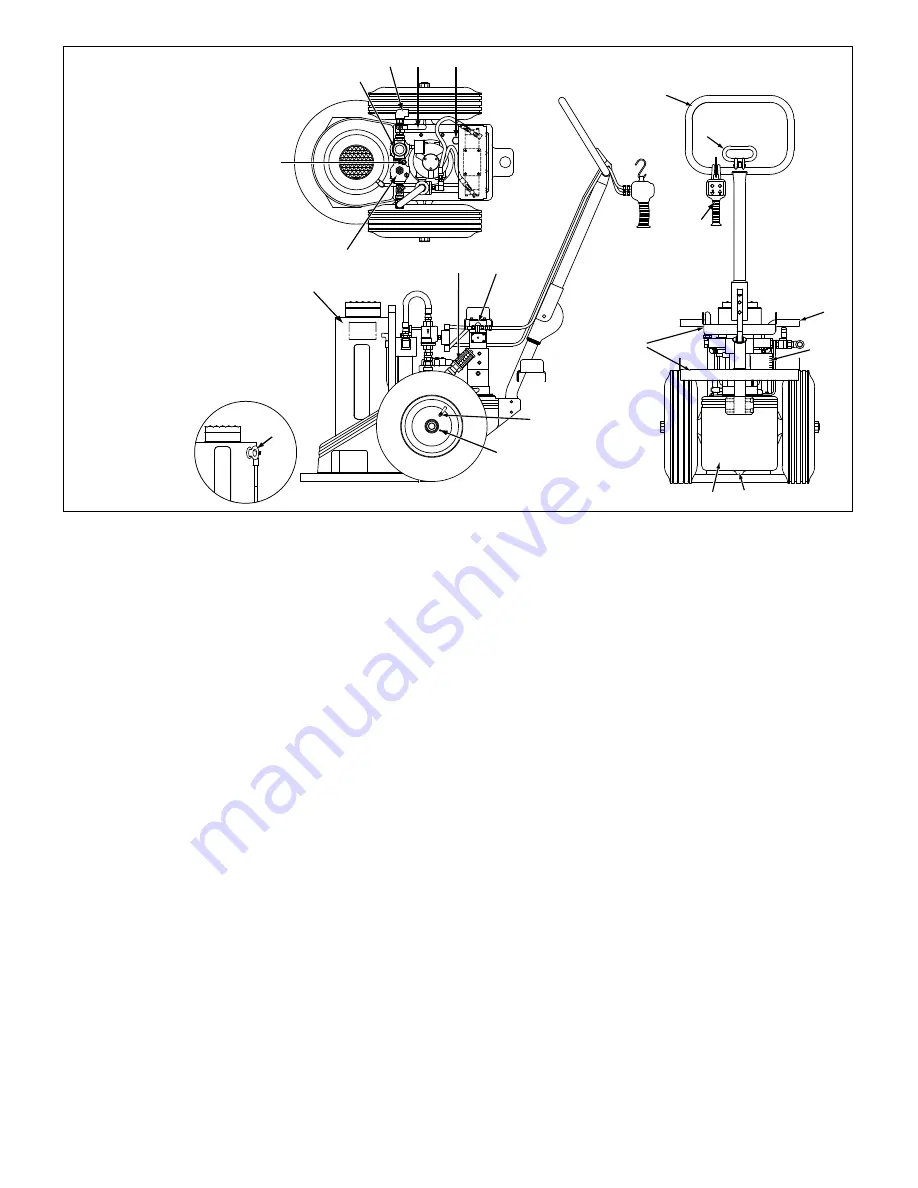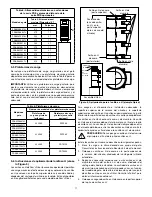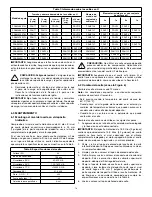
4.0 INITIAL SETUP
4.1 Adding Oil
Before startup, remove the oil fi ll plug (callout #11) and check
oil level. Oil level should be about 1 inch [25 mm] below top of
reservoir. Add Enerpac HF hydraulic oil to reservoir if necessary.
See Section 6.1 for additional information.
4.2 Air Requirements
Lubricated air is necessary to provide shaft seal lubrication for the
air motor, and to prevent rust. All models are equipped with an
automatic air line lubricator set to feed approximately 3 drops per
minute.
Before startup, check the level in the air line lubricator (callout #7)
and add additional lubricant if needed. Use an SAE 10 [ISO 32]
detergent oil or an approved antifreeze lubricant. See Section 6.4
for additional information.
A fi lter/regulator with moisture trap (callout #9) is installed in the
air line ahead of the motor. For effi
ciency of output and control
of speed, use an air line of not less than 3/4 inch pipe size. Air
pressure and fl ow must be at least 50 CFM @ 80 psi
[
1416 l/min
@ 5,5 bar]. The air inlet connection is a 1/2" NPT female thread.
Be certain that compressed air is clean and dry. Moisture in the
air line can cause rust formation in the air motor and may result
in reduced performance. Allowing excessive moisture or foreign
particles to enter the air motor will void the Enerpac warranty.
4.3 Using the Jack for The First Time
Note:
Refer to Section 5.0 for detailed jack operation instructions.
1.
On PRAMA Series models, be sure that the control valve lever
is in the center (neutral/hold) position.
Note:
On PRASA Series models, the air operated control valve
automatically returns to the center (neutral/hold) position when
the pendant buttons are not depressed.
2.
Connect an air hose at the air inlet connection (callout #10).
Note:
On PRAMA Series models, the motor will start immediately
when the air supply valve is opened. On pendant controlled
PRASA Series models, the motor will start automatically when
either pendant button is depressed.
3. Open the air supply valve (callout #4). Using the regulator
knob, adjust the air pressure to a minimum of 80 psi [5,5 bar].
IMPORTANT:
Perform the following step with no load on jack.
4.
Check for proper operation by fully extending and retracting
the cylinder (callout #13). Use the lever on the manual control
valve (callout #5 - PRAMA Series models) or the buttons on
the pendant (callout #6 - PRASA Series models) to control
cylinder movement. To remove air from system, cycle the
cylinder as needed until operation is smooth.
4.4 Using the Handle Assembly to Position the Jack
1.
Push handle lock lever (callout #1) to release lock pin.
2.
With lock pin released, position handle assembly (callout #2)
to desired location and release handle lock lever (callout #1)
to engage lock pin.
3.
The jack can now be tilted back onto the wheels and pushed
or pulled to the work area. Use caution when walking
backwards.
4. If needed, the jack can be lifted using the lifting bar (callout
#3 - if equipped) or the lifting eyebolt(s) (callout #17 - if
equipped).
Note:
Lifting bars are installed on short stroke PRAMA060, PRA_
A100 and PRASA150 Series models. Lifting bars are not used on
any long stroke models or on short stroke model PRASA20016L.
All long stroke models are equipped with
one
lifting eyebolt.
The short stroke model PRASA20016L is equipped with
two
lifting eyebolts. Lifting eyebolts are not present on short stroke
PRAMA060, PRA_A100 and PRASA150 Series models.
3
19
1
5
9
16
7
13
14
4
10
11
12
15
3
8
6
18
2
19
20
17
Figure 2, Major Features and Components - PRASA Series Models
Key:
1. Handle Lock Lever
2. Handle Assembly
3. Lifting Bar
*
4. Air Supply Valve
5. Control Valve, Air Operated
6. Pendant
7. Air Line Lubricator
8. Reservoir Air Breather
9. Air Line Filter/Regulator
10. Air Inlet Connection (1/2" NPT)
11. Oil Fill Plug
12. Oil Filter
13. Hydraulic Cylinder
14. Hydraulic Reservoir
15. Oil Drain Plug
16. Air Muffl
er
17. Lifting Eyebolt
*
18. Wheel Bearing Grease Fitting
19. Tire Air Valve
20. U-Ring Storage
*
Not present on all models.




































